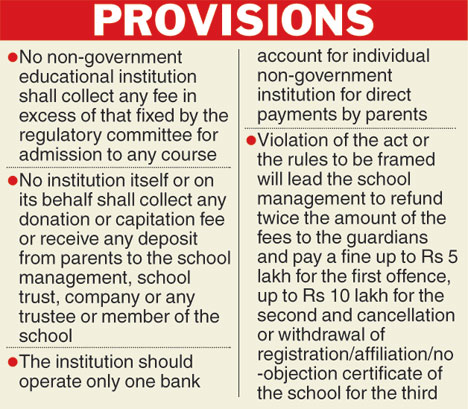
Guwahati: Dispur on Monday tabled two bills in the Assembly, proposing regulation of fees charged by non-government educational institutions and streamlining their management including infrastructure and salary of the staffs.
The Assam Non-Government Educational Institutions (Regulation of Fees) Bill, 2018, proposes a fee regulation committee while the Assam Non-Government Educational Institutions (Regulation and Management) (Amendment) Bill, 2018, prescribes new infrastructure guidelines for such institutions set up after January 1, 2006.
The two bills were tabled in the Assembly by parliamentary affairs minister Chandra Mohan Patowary, on behalf of education minister Himanta Biswa Sarma.
The first bill proposes that the fee regulation committee will recommend maximum limits of fees to be charged by different categories of non-government educational institutions every year before the start of the academic session.
The committee will determine the fee to be levied after taking into account factors such as location of the institution, investment incurred to set up the school, infrastructure and facilities made available to the students, student strength, courses offered, revenue surplus for further development and expansion.
The committee will comprise a retired district and sessions judge or a retired All India Service officer not below the rank of commissioner and secretary, a chartered accountant, one civil engineer/ government-approved valuer, secretaries of Board of Secondary Education, Assam and Assam Higher Secondary Education Council, one representative from non-government educational institution management and an academician of repute to be nominated by the government.
The committee shall have power to ask the non-government institutions to submit proposed fee structure along with all relevant documents and books of accounts for scrutiny, verify whether the proposed fee is justified. It will hear complaints or initiate suo motu hearing with regard to collection of excess fees.
The bills say a lower primary or middle English school in the rural areas must have at least two bighas of land and one bigha for those in municipal and town committee areas. The same is five bighas and two bighas for high school, higher secondary and senior secondary schools.
The bills make it mandatory for all such institutions to provide safety measures, including fire safety, a disaster management plan and hold mock drill as disaster management preparation. It makes provision for parking space, separate toilets for boys and girls and salaries to teaching and non-teaching staffs as prescribed by their affiliated institutions.











